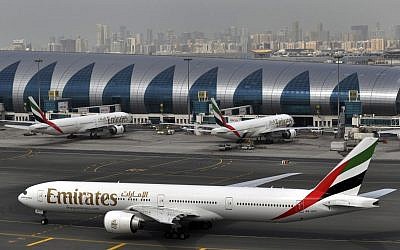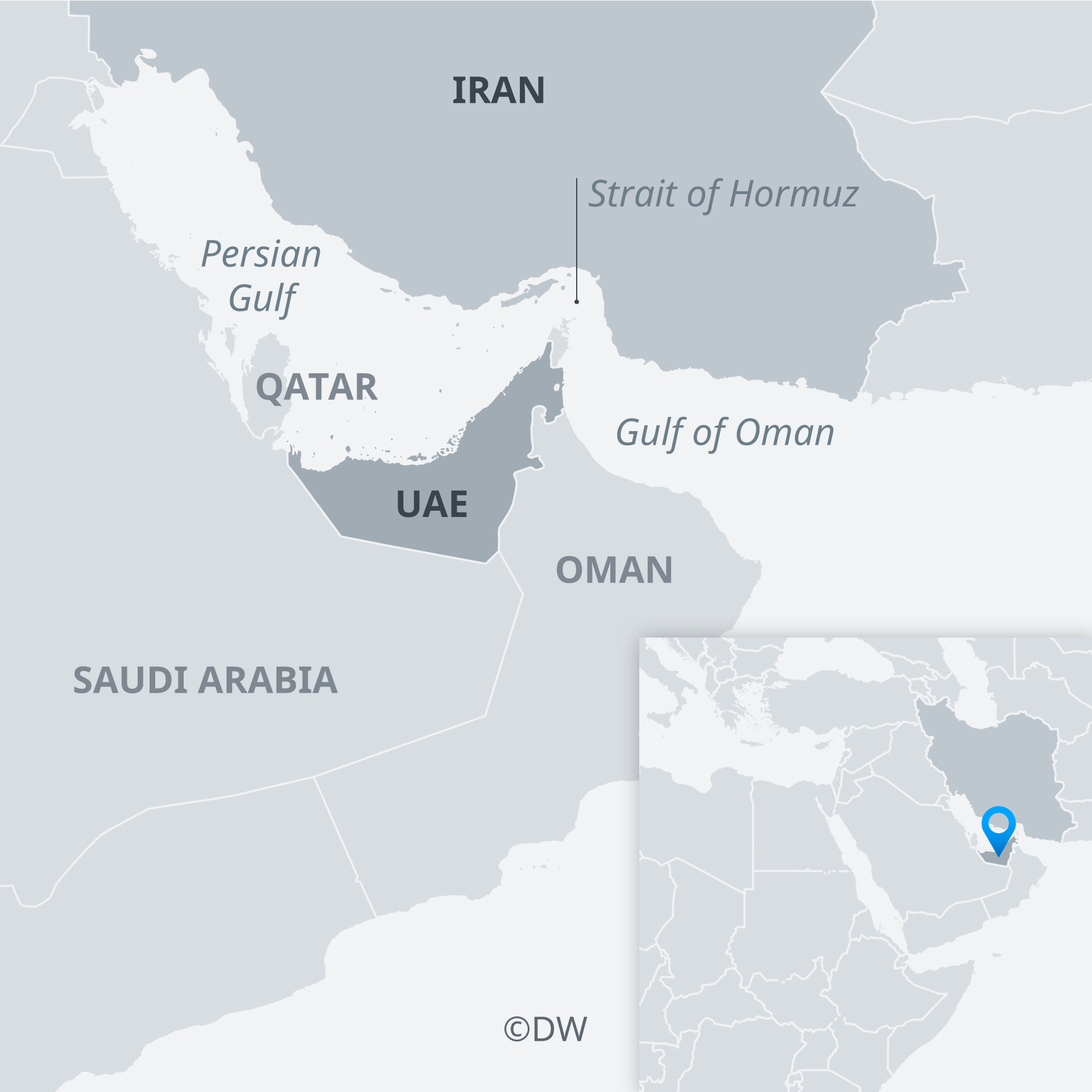Iran's Destabilizing Influence
"Although Iran likely has no intention to target civil aircraft, the presence of multiple long-range, advanced anti-aircraft-capable weapons in a tense environment poses a possible risk of miscalculation or misidentification, especially during periods of heightened political tensions and rhetoric."
U.S. Federal Aviation Administration warning
"[The warning represents America's] psychological war against Iran."
"One cannot forget the fact that it was indeed a U.S. warship that wantonly targeted an Iranian civilian passenger aircraft [1988 accidental shooting down of an Iran Air passenger plane flying from Tehran to Dubai, mistaken for an Iranian F-14 jet-fighter during the Iran-Iraq war]."
"The U.S. has yet to apologize for that act of terrorism against Iranian civilians."
Iranian mission to the United Nations
 |
| An Emirates plane taxis to a gate at Dubai International Airport at Dubai International Airport in Dubai, United Arab Emirates. (AP Photo/Adam Schreck) |
What the Iranian mission to the United Nations was referring to was a 30-year-old incident when the USS Vincennes was engaged in a chase of Iranian speedboats that had opened fire on a helicopter as they fled into Iranian territorial waters.The ship mistakenly identified an Iran Air passenger jet on its way to Dubai, as an Iranian F-14 fighter jet and fired two missiles at it, resulting in the death of all aboard the flight. A tragedy in the field of combat during the Iran-Iraq war.
 |
| Young boys, aged 12-17 years, wore red headbands with the words 'Sar Allah' in Farsi (Warriors of God) and small metal keys that the Ayatollah declared were their tickets to Paradise if they were martyred in their mission |
The current tensions in the Gulf have resulted as a stand-off between the Iranian Republic and the United States initiated with the White House pull out of the nuclear deal that President Trump cancelled, imposing fresh sanctions on Iran and the theistic regime responding that nothing would now hold them back from refining uranium to weapons-grade material. That, added to Iran's continual threats to close the Gulf to all shipping but their own and recent disabling of three ships by Hezbollah, near the United Arab Emirates coast, and a Houthi strike on Saudi Oil refineries.
More than ample provocation. And despite Iran's continual challenges to its Sunni Middle East rivals and by extension to the United States; threats aside, Iran claims to be disinterested in engaging in a full-scale war with the United States. At the very same time its Islamic Revolutionary Guard Corps heads snarl their own warning to the U.S. that should any effort be made on their part to contest Iran the costs to the United States would be beyond consequential. If there is anything that Islamic nations both Arab and Persian excel at, it's hyperbolic intimidation.
Iran feels it should be able to impose threats and intimidate its neighbours, complete with sabotaging their oil tankers and bombing oil pipelines without repercussions. They simply have to shrug and state they weren't involved, despite giving imperative orders to their affiliated terrorist groups. The hubris of the Iranian ayatollahs is beyond impressive, though it does stray into the territory of rabid fanaticism typical of fundamentalist psychopaths.
Iraq is discombobulated that ExxonMobil has abandoned ship, so to speak, evacuating their staff from Basra; obviously heeding all the warning signs of impending clashes should impetuosity continue partnering with oblivious disregard for penalties. Bahrain has ordered its citizens to leave Iraq and Iran given "the recent escalations and threats". Iraq's oil minister, Thamer al-Ghadban states:
"The temporary withdrawal of employees has nothing to do with security in southern Iraqi oil fields or any threats.The reasons are political and probably linked to tensions in the region." Well -- 'probably'.
 |
| Workers walk in the Nihran Bin Omar field north near Basra, Iraq, in 2017. An Iraqi oil official says employees of energy giant ExxonMobil have started evacuating an oil field in the southern province of Basra amid rising tensions between the United States and Iran. | AP |
The White House response to the Iranian challenges to the European partners of the nuclear deal and allied threats has been to order an aircraft carrier and B-52 jet bombers into the area. Perhaps a trifle more ominous is the order for all non-essential U.S. staff to remove themselves from diplomatic posts in Iraq. A move that Iraq views with considerable alarm; pitting it between its two allies, the Islamic Republic of Iran and the United States of America. A most uncomfortable position it has no wish to occupy.
Yet neither is U.S. President Donald Trump "seeking war". Still the 60-day warning deadline for new terms whose absence will hasten the enrichment of uranium to weapons-grade for a Tehran that has no interest in nuclear weapons, much less the building of atomic warheads to sit atop those more technologically advanced Intercontinental Ballistic Missiles Iran has boasted could reach the continental U.S. mainland... Oh, and Israel, the lesser of the two targets in difficulty in achieving Iran's goal, but the greater of its ambitions.
Aircraft flying in the region, warning aside, noted the FAA in its heads-up to Airmen, cautions that all commercial aircraft in flight over the Persian Gulf and the Gulf of Oman must be aware of Iranian weaponry and fighter jets; that aircraft might conceivably experience navigation instruments interference and jamming of their communications systems "with little to no warning".
"There has never been a threat or risk to civilian air traffic in the Persian Gulf from Iran" responded Alireza Miryousefi, Minister and head of Media office, Iranian Mission to the United Nations.

Labels: Aircraft, Islamic Republic of Iran, Persian Gulf, Shipping, Threats, United States

<< Home